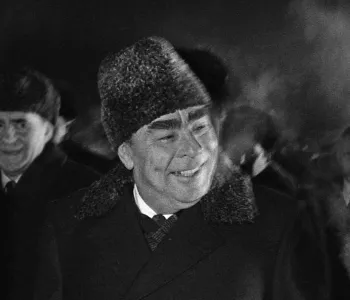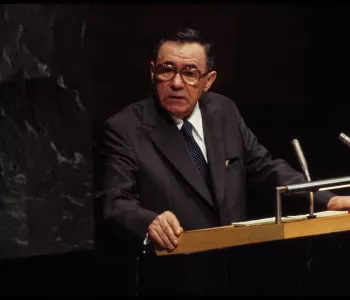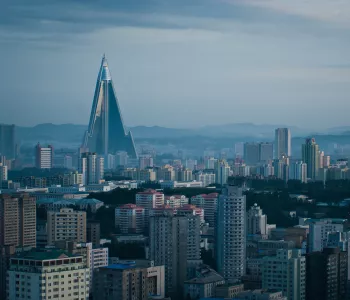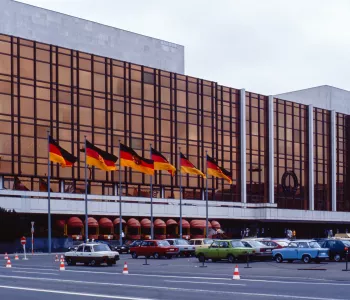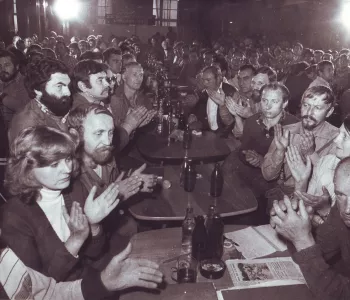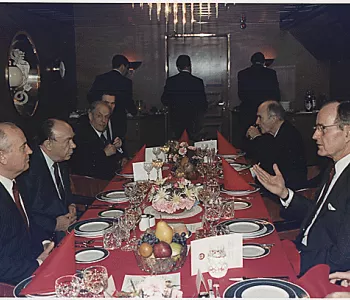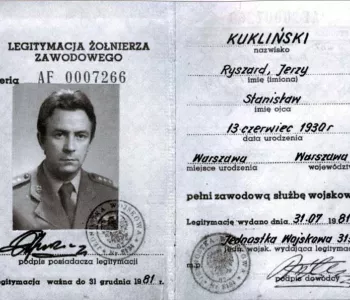d'Vinci

Jaruzelski, W. (Wojciech) 1923- 2014
Wojciech Witold Jaruzelski was a communist Polish political and military leader. He served as the party's national secretary and prime minister form 1981-1990.

An officer in the Polish Army, he was trained at the Polish Higher Infantry School and the General Staff Academy, and joined the Polish United Workers' Party (the former Polish Communist Party), of which Central Committee he became a member in 1964.
In 1968 he was heavily involved in the "cleansing" of the Polish army due to Moczar's anti-Semitic campaign. In the same year, he led the invasion of Czechoslovakia. In 1970 he was involved in the plot against Wladyslaw Gomulka, and probably took part in organization of the massacre in the coastal cities of Gdansk, Gdynia, Elblag and Szczecin.
Jaruzelski became the party's national secretary and prime minister in 1981, when Lech Walesa's movement (Solidarity) was starting to earn national and external popularity. The Soviet Union became more and more concerned and threatened with invasion - a very credible threat, as they had invaded Afghanistan two years before.
The policies of Mikhail Gorbachev also stipulated political reform in Poland. By the close of the 10th plenary session in December 1988, the Communist Party had decided to broach leaders of Solidarity for talks. These talks, which became known as the "roundtable talks," with 13 working groups in 94 sessions from February 6 to April 15, radically altered the shape of the Polish government and society. The talks resulted in an agreement in which real political power was vested in a newly created bicameral legislature and in a president who would be the chief executive. Solidarity was legalized. After the elections, the Communists, who were guaranteed 65 percent of the seats in the Sejm (the parliament), did not win a majority, and Solidarity-backed candidates won 99 out of 100 freely contested seats in the Senate. Jaruzelski, whose name was the only one the Communist Party allowed on the ballot for the presidency, won by just one vote in the National Assembly.
Although Jaruzelski tried to persuade Solidarity to join the Communists in a "grand coalition," Lech Wałęsa refused. Jaruzelski resigned as general secretary of the Communist Party but found he was forced to come to terms with a government formed by Solidarity. In 1990 Jaruzelski resigned as Poland's leader. Subsequently, Jaruzelski has faced charges for a number of actions he committed while he was defense minister during the communist period.
